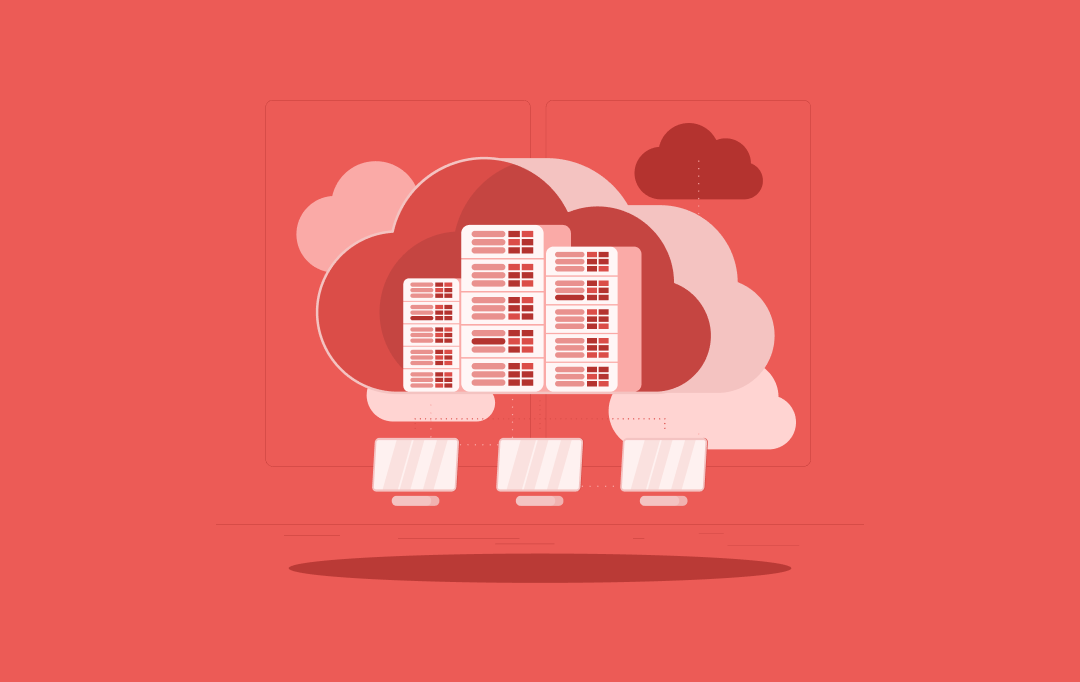- Benefits of Hiring a Managed Cloud Service Provider
- Key Considerations When Hiring a Cloud Managed Service Provider
- Security and Compliance
- Budget and Pricing
- Capability and Scalability
- Data Migration and Portability
- Customization
- Best Practices to Hire A Cloud Managed Service Provider
- Define Your Project Goals
- Check Online Platforms
- Look for Referrals
- Evaluate Experience and Expertise
- View the Portfolio
- How to Hire Managed Cloud Service Providers - A Questionnaire
- What types of services do you offer?
- Is there a service-level agreement?
- How do you ensure data security?
- Can you provide references?
- What is your communication and support model?
- Do you provide regular updates and maintenance?
- Are you future-ready?
- What is your offboarding process?
- What is your team structure?
- Do you give ownership and control over the environment?
- What Sets Appinventiv Apart from the Competition?
- FAQs
The global COVID-19 pandemic has sped up the digital transformation process on a wider scale, increasing the business’s reliance on cloud capabilities. A significant 90% of businesses have witnessed a surge in cloud adoption due to the pandemic. This shift facilitates remote work, catering to the increasing need for personalized customer experiences, and enhancing system reliability. It is why modern enterprises increasingly rely on managed cloud service providers to support their IT infrastructure (servers, storage, databases, and software) and enhance their performance, flexibility, scalability, cost efficiencies, and innovation.

According to Gartner, investment in public cloud services is expected to increase by 20.7%, reaching $591.8 billion in 2023, a rise from $490.3 billion in 2022. Unsurprisingly, the adoption of cloud services has skyrocketed in recent years, making it the present and future of IT services.

However, for many organizations, choosing the right cloud managed service providers (CMSPs) for the effective management of their IT infrastructure and data storage is quite a challenging process. This is mainly because there are a number of managed cloud providers, claiming to offer unique services.
To help you find your perfect cloud partner, in this blog, we will explore the benefits of cloud MSP, how to pick the right one, and why Appinventiv stands out as your trusted managed cloud provider.
Benefits of Hiring a Managed Cloud Service Provider
In today’s cloud-dominated landscape, businesses are under increasing pressure to adopt cloud computing technologies and embrace digital transformation to stay competitive. Accordingly, they turn to managed cloud service providers who can help them navigate the complexities of cloud computing while ensuring the robustness and effectiveness of their IT infrastructure. Cloud managed service providers offer a range of benefits that go beyond traditional in-house IT management, contributing to the growth and success of businesses in the modern era.

Here are some remarkable benefits of hiring a cloud managed service provider:
- Processes are run and managed by highly skilled cloud experts.
- You can save time, money, and effort on hiring and managing in-house experts.
- Get access to cutting-edge applications and the latest technologies.
- Scale up or down as per the changing requirements of your business.
- They provide automatic updates and regular maintenance to your IT system.
- Most MSPs are subscription-based; thus, you can easily anticipate the amount you will spend every month.
- Cybersecurity support is one of the most remarkable benefits of hiring CMSP, preventing data breaches and ensuring business continuity.
Hiring a managed cloud services provider is like leveraging the power of a digital wizard, a strategic necessity for modern enterprises that can magically transform their business operations and data storage systems. Picture this: a team of skilled IT professionals standing by your cloud journey with finesse and innovation. Isn’t it a support that every enterprise should embrace?
To gain deeper insights into how CMSPs can benefit businesses, read why hiring cloud managed services is a strategic necessity for modern enterprises.
Also Read: Managed vs. Co-Managed IT Services – Selecting The Right Fit For Your Organization
Key Considerations When Hiring a Cloud Managed Service Provider
As businesses are increasingly shifting towards the cloud, hiring the right cloud managed service provider has become essential for modern businesses. However, finding the right vendor to suit your specific requirements comes with a list of considerations and steps. So, to help you in this venture, here is a list of crucial considerations. Let’s dive in:

Security and Compliance
Before you partner with a managed cloud hosting provider, ensure their security and compliance standards align with your company’s needs. For instance, if your company deals with sensitive data, you must confirm that your CMSP has robust data protection and data privacy policies in place. Additionally, ensure that the provider has essential certifications like ISO 27018, ISO 27001, GDPR, HIPAA, and so on.
Budget and Pricing
Cost is one of the most crucial factors when hiring cloud managed service experts. Before you embark on your cloud journey, define your budget, ensure that your chosen CMSP aligns with your budget, and understand their pricing model – whether it is pay-as-you-go, subscription-based, or a combination of both. A combination or a hybrid cloud solutions provider is often a better choice than the rest of the available options.
Don’t forget to consider other cost-affecting factors like bandwidth, cloud storage systems, and maintenance services. Do you need to pay additional charges for these services, or does your cloud service package include all these costs?
Capability and Scalability
Before signing a contract with a cloud managed service provider, evaluate their efficiency to handle your infrastructure and sudden surges in demand. As your business grows, your cloud needs will change. Thus, your chosen cloud partner should offer scalability to accommodate your increasing demand without disrupting your operations.
Data Migration and Portability
A well-defined migration strategy is essential to prevent service interruption and data loss. Therefore, when choosing a cloud provider, confirm how easily you can migrate your data and applications if you decide to switch providers. How easily can you access the data? How much control you will have over the data, and so on. The answers to these questions will help you make a wiser choice.
Also Read: How can enterprises protect their data in cloud environments?
Customization
Your business is unique, and so are your cloud requirements. A reliable managed cloud service provider offers customized solutions tailored to your needs rather than a one-size-fits-all approach.
As a growing number of global businesses realize the importance of strong cloud infrastructure, you must step gingerly to hire the right MSP and remain competitive. By carefully evaluating these factors, you can hire a cloud managed service provider who can align with your project needs and define your future growth.
Best Practices to Hire A Cloud Managed Service Provider
In the big tapestry of cloud managed service providers, each step weaves its thread into the overall cloud platform. Here are some best practices to consider when choosing a cloud provider.

Define Your Project Goals
The journey of hiring the best managed cloud provider starts by outlining your business objectives, challenges, and desired outcomes. Figure out the specific areas where you need support, whether it is cost optimization, cloud migration, security enhancements, or ongoing maintenance. A clear understanding of your project needs will help you hire a cloud managed service provider that aligns with your goals.
Check Online Platforms
Checking online platforms like MobileAppDaily, Clutch, GoodFirms, etc., is one of the best ways to find your trusted cloud partner. These platforms demonstrate a list of best CMSPs worldwide and are worth considerable due to their global recognition.
Look for Referrals
Make efforts to find referrals from your well-wishers who have availed of managed services in the past. Ask your friends, family, and colleagues for references to hire the trusted MSPs.
Evaluate Experience and Expertise
When looking for a trusted cloud managed service provider, look for their experience with cloud platforms (AWS, Azure, etc.) and familiarity with your industry’s regulations. An MSP with a proven track record of successfully managing cloud environments and a commitment to fostering long-term partnerships is most likely the best choice for all your cloud needs.
View the Portfolio
It is one of the best practices to consider when looking for the right cloud management service provider. The portfolio demonstrates the types and quality of work they provide, testifying their ability to handle your project and meet your business needs. It also indicates that the MSP has a proven track record of managing complex cloud environments and delivering high-quality work for various domains.
You may like reading: Cloud Data Migration – Adopting the Right Strategy and Best Practices
How to Hire Managed Cloud Service Providers – A Questionnaire
As you embark on your cloud journey to find the right cloud managed services provider, evaluating the potential provider with the right set of questions can uncover valuable insights. Therefore, in this segment, we will provide you with a questionnaire to help you hire a cloud managed service provider that aligns with your business needs and goals.

What types of services do you offer?
Ask the MSP if they provide the specific services your business needs, such as monitoring, security, scalability, data backup, and network management. A comprehensive range of services ensures that your chosen service provider can meet your evolving needs. Just because you don’t require a particular service at the moment doesn’t mean you will not need it in the future as your business grows.
Is there a service-level agreement?
It is also a crucial question. A service-level agreement (SLA) is a contract between the provider and the user outlining the service level the MSP will provide and their guaranteed response times. If the MSP fails to provide the agreed level of service, it often makes the contract void, like refunds or free service.
How do you ensure data security?
A minor incident of security breach can be catastrophic, bringing your entire business operation to a standstill. So, before you sign a contract with a cloud-managed service provider, confirm their approach to data security. How do they monitor and respond to threats? Do they implement data encryption? Do they have SOC 2, ISO 27001, and HIPAA compliance certifications?
Can you provide references?
There is no better way to ensure the credibility of your chosen managed cloud service provider than to seek the references of their past clients and check their testimonials. Ask the CMSP about their client references and contact them to ensure their satisfaction rate. If the provider hesitates to give its past clients references, consider it a red flag and move to the next option.
What is your communication and support model?
24/7 support is not a trend; it is a necessity. So, before you choose your managed cloud partner, ensure that it offers responsive support in case of any issues or emergencies. Also, ask about their communication modes and average response times to understand their commitment to customer service. A reputed MSP always harnesses the capabilities of AI powered chatbots to ensure round-the-clock responsiveness.
Do you provide regular updates and maintenance?
It is one of the most important questions you must ask the service provider before you sign the contract. Find out if the managed cloud provider caters to the need for regular updates and maintenance to ensure your IT infrastructure is always up-to-date with industry trends. A reputed CMSP will regularly review and manage your system and provide maintenance when detecting any vulnerabilities in the software you are using.
Are you future-ready?
Technology evolves rapidly, requiring your business to leverage its potential to the fullest to stay competitive in the modern business world. Ask your cloud managed service provider about their approach to innovation and how they stay updated with the industry trends. They should be forward-thinking and adaptable to emerging technologies.
What is your offboarding process?
It is one of the most crucial questions that is often overlooked when searching for the best managed cloud solution provider. Over the years, your business’s needs will change, and so will the provider’s capability to meet them. You will never want to get stuck with a particular provider who fails to meet your evolving needs. Also, having a clear exit strategy is a sign of an honest agreement.
What is your team structure?
Ask the managed application services provider cloud service provider to give an insight into the team – the number of cloud experts who would work on the project, the team’s experience, the tech stack they will use, etc. Having a clear understanding of these elements will give you an idea if your CMSP is proficient in handling your cloud requirements.
Do you give ownership and control over the environment?
Some managed cloud service providers offer a “black box” model for cloud management. It simply means to receive their cloud monitoring and management services for cloud migration. So, if you ever need to modify the infrastructure, you have to count on them and wait for support to get back to you, wasting your valuable time and slowing down your problem-solving approach. Therefore, you should partner with a cloud managed service provider that gives you full control and ownership of your cloud environment. At Appinventiv, we enable you to deploy your own cloud management solution into your IT environment.
If your chosen cloud MSP manages to give satisfactory replies to these ten considerable questions, take it as a green signal and sign the contract with your interviewed candidate.
What Sets Appinventiv Apart from the Competition?
With the right cloud managed service provider, your business can be more agile and secure. No matter the size of your organization or the industry you operate in, Appinventiv can be your trusted managed cloud services partner. Think of us as a public cloud provider with the security of a private cloud.

With a team of 300+ seasoned cloud experts and an L1/L2 help desk support to provide 24/7 full-stack Cloud and DevOps managed services, we stand out as a true partner in your cloud journey.
Our partnership with 3+ cloud service partners like AWS, Azure, and Google Cloud has enabled us to successfully deliver over 600 cloud-based projects for many reputed brands across industries.
No matter where you are in your cloud journey, we, as your trusted managed cloud service provider, are here to help. Contact us today and leverage the full potential of the cloud in digital transformation.
FAQs
Q. What to consider when choosing a cloud provider?
A. When hiring a cloud service provider, you must evaluate several factors. Some of the most important considerations are:
- Certifications and standards
- Technologies and service roadmap
- Data security, data governance, and business policies
- Service dependencies and partnerships
- Reliability and performance
- Service level agreements (SLAs)
- Cost structure and pricing models
- Migration support, vendor lock-in, and exit planning
Q. How much should a managed cloud service provider cost?
A. A cloud managed service provider should always cost less than the total cost of setting up an in-house team. While evaluating the cost of the in-house team, don’t miss calculating the initial fixed cost of hiring staff and buying tools as well as recurring costs of employee payment and system management.
Q. What services does a cloud managed service provider offer?
A. Some of the most remarkable services that a cloud MSP offers to an organization are:
- Network and storage management
- Cloud Migration
- Cloud deployment
- Cloud Security
- Cloud Monitoring and Reporting
- Set-up of infrastructure
- Backup and Disaster Recovery
- Business Continuity
Q. What are the different types of cloud services?
A. There are typically four types of cloud services
- Software as a Service (SaaS)
- Platform as a Service (PaaS)
- Infrastructure as a Service (IaaS)
- Function as a Service (Faas)
To know more about the types of cloud services, please read Unleashing the Potential of Cloud in Digital Transformation
Q. How to choose a cloud service provider?
A. Choosing a cloud provider is a challenging process involving various steps. These steps include accessing your specific business requirements, comparing offerings from different cloud providers like AWS, Azure, and Google Cloud, prioritizing security and scalability, considering their support quality, understanding cost structure, reviewing client references, checking portfolios, ensuring compatibility with your technology stack, and so on.



How to Build a Robust Multi-Cloud Strategy for Future Readiness
Key takeaways: Multi-cloud adoption is growing and 76% of enterprises have already embraced multi-cloud environments. Avoiding vendor lock-in is a major driver for businesses moving to multi-cloud strategies. Cost optimization and enhanced security are key benefits of multi-cloud adoption. Businesses must align their multi-cloud strategy with business objectives for scalability, security, and innovation. Seamless integration…

How Cloud Analytics Helps Businesses Make Data-Driven Decisions Faster
Key takeaways: Cloud analytics accelerates decision-making by offering real-time insights and scalability. Businesses gain cost efficiency, enhanced agility, and improved accuracy with cloud analytics. Leveraging AI and big data empowers faster, smarter decision-making in industries like e-commerce, healthcare, and finance. While implementing cloud analytics, businesses face challenges like data security and integration, but there are…

Transforming Legacy Systems with Cloud Migration: The Whys and Hows
Key takeaways: Legacy systems hinder innovation, security, and agility, making cloud migration a strategic imperative. A successful legacy to cloud migration hinges on careful planning, choosing the right strategy, and robust execution. Benefits of cloud migration for legacy systems include enhanced scalability, fortified security, and significant cost optimization. Industry-wide use cases demonstrate the transformative power…


















